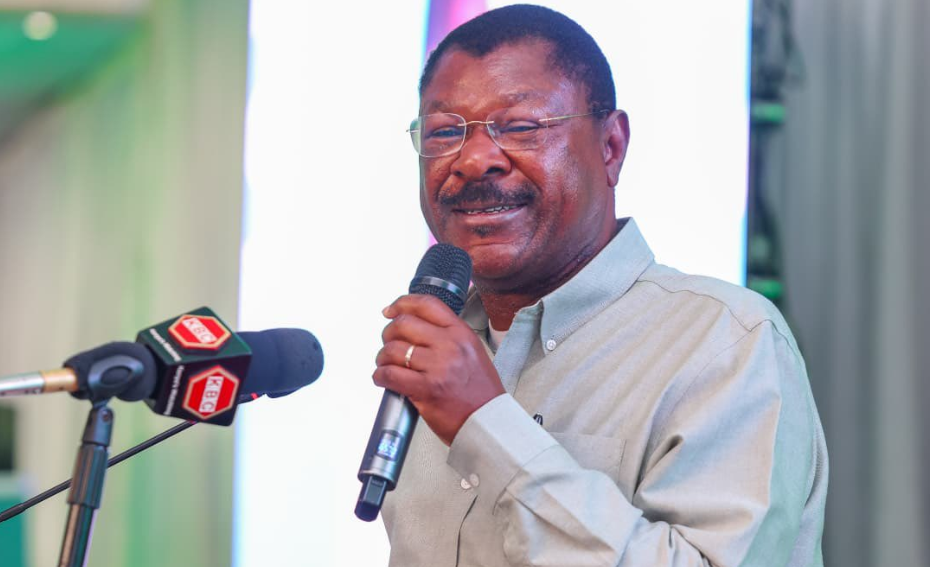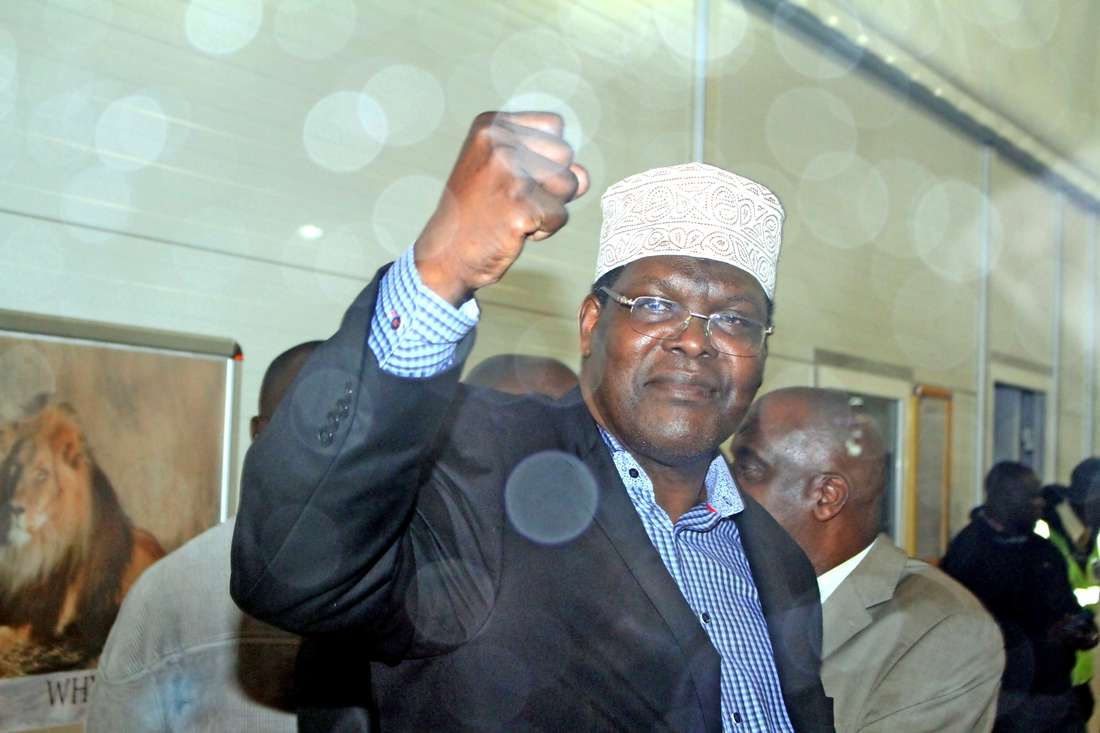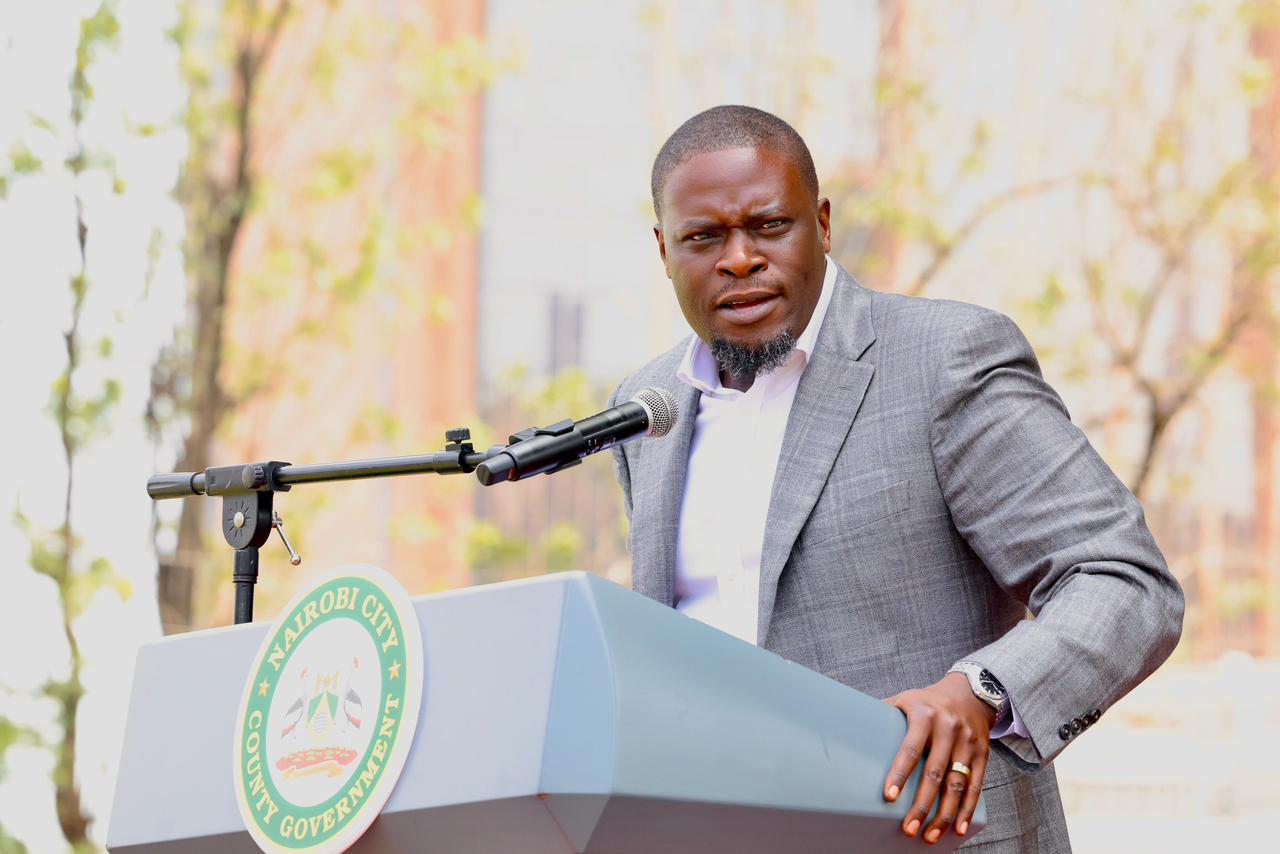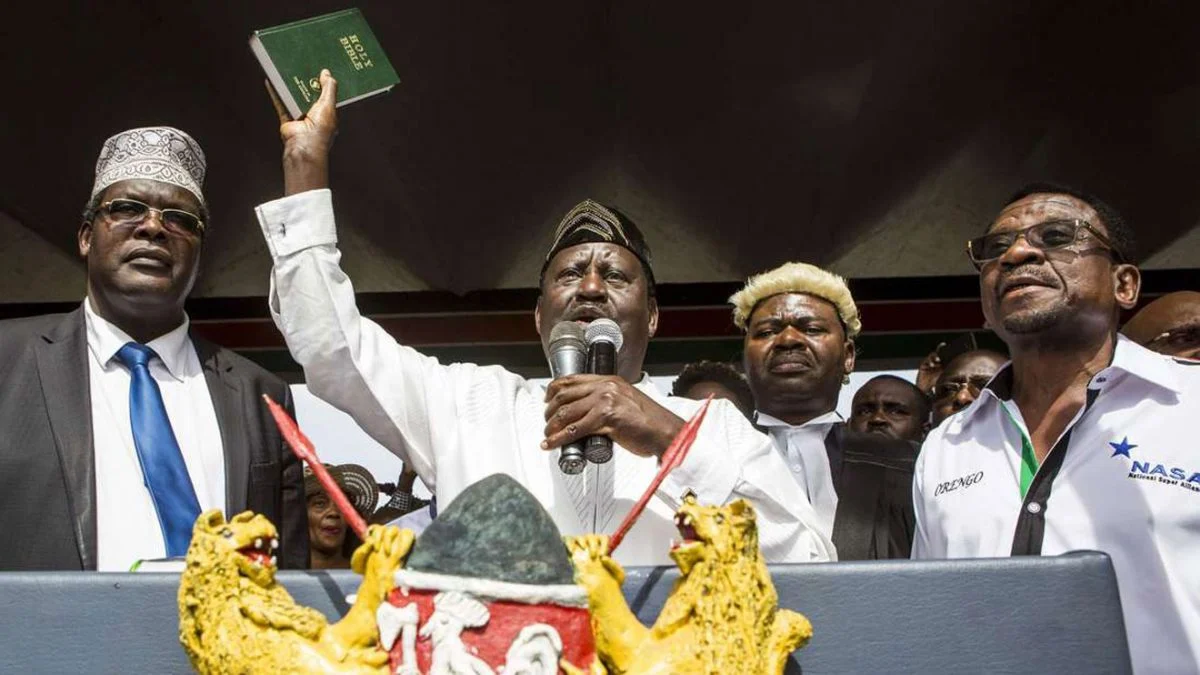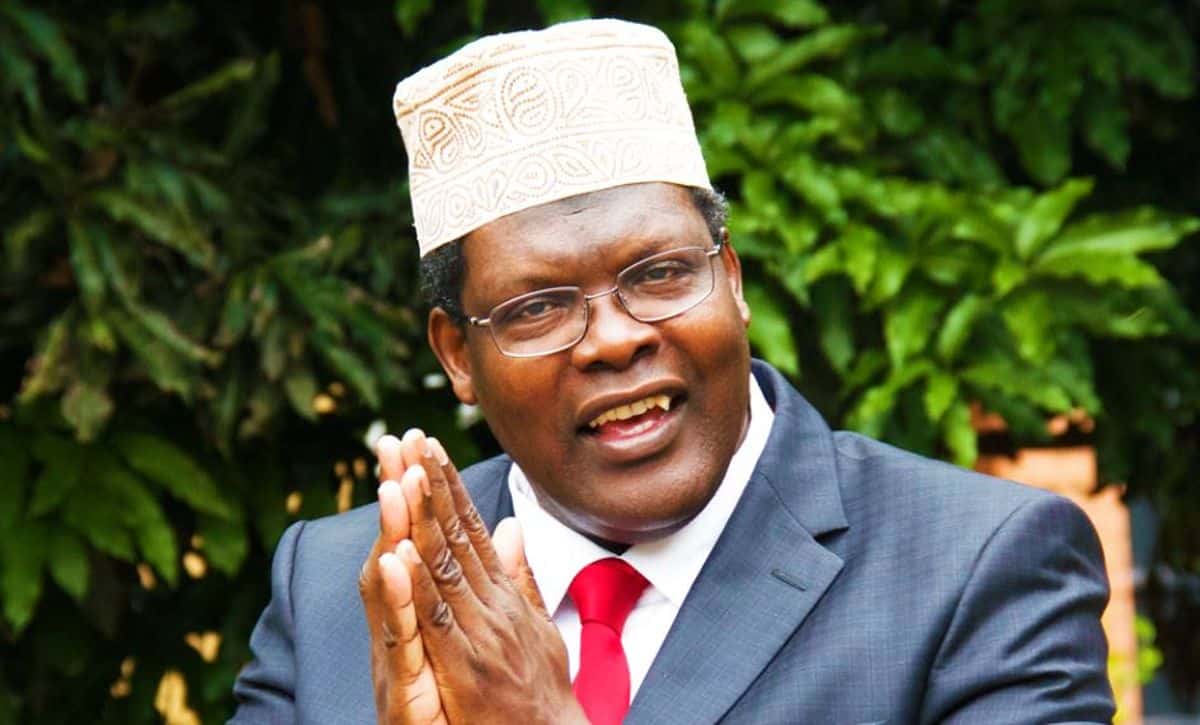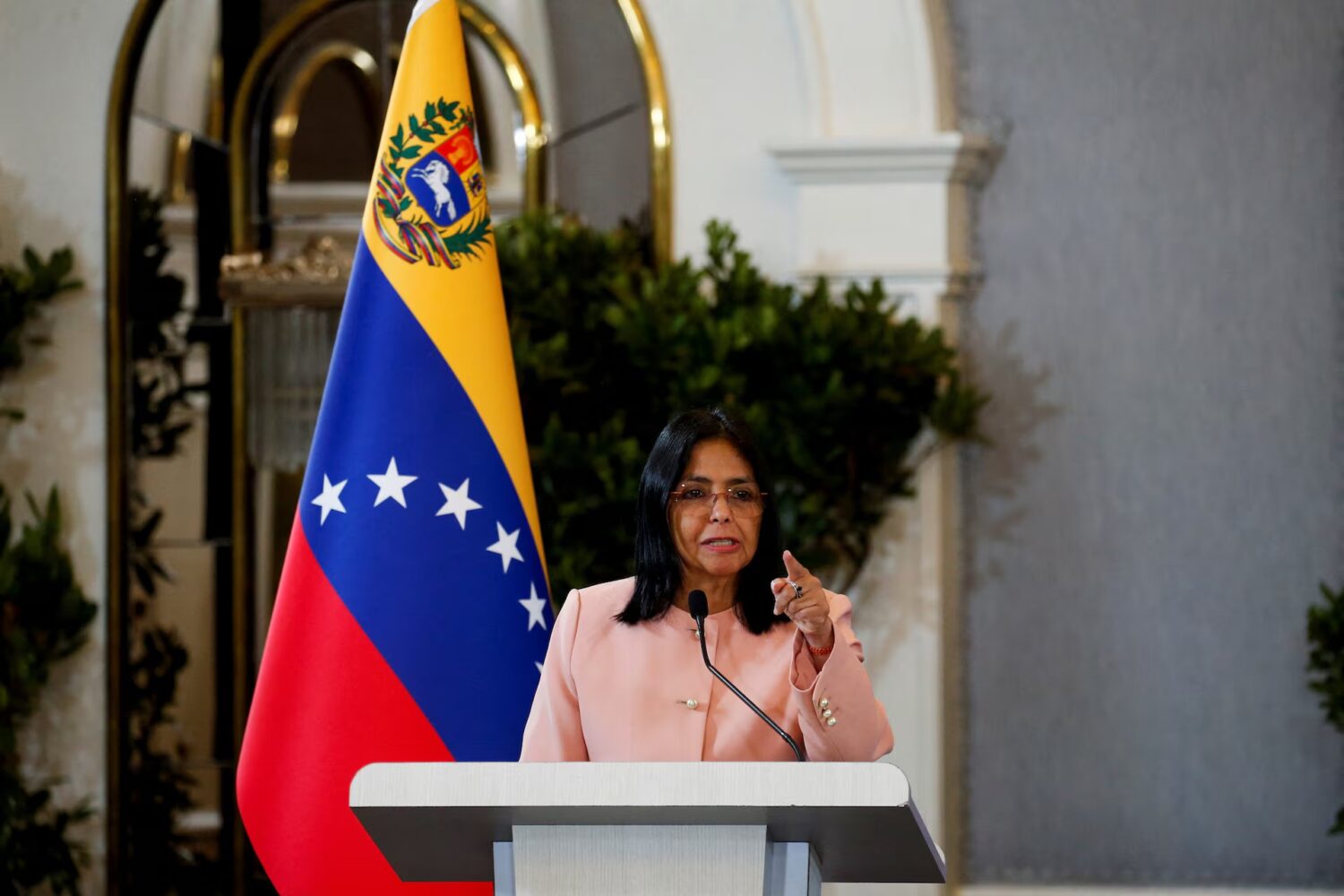National Assembly Speaker Moses Wetang’ula has cautioned Members of Parliament (MPs) against undermining public trust through unethical conduct and absenteeism.
He stressed that credibility of the House depends on how well legislators uphold constitutional values and attend to their duties.
The Speaker was addressing MPs during the official opening of the 3rd Leadership Retreat of the 13th Parliament in Mombasa.
The retreat is themed: “Re-invigorating Synergy in Leadership for Accelerated Discharge of the Mandate of the National Assembly”.
Wetang’ula noted that public debate in recent weeks had cast doubt on Parliament’s integrity, with allegations of legislators soliciting and receiving inducements to influence legislation.
He said: “I treat these allegations as rumours but as an institution we cannot afford to ignore the growing perception that corruption was infiltrating the law-making process”.
“More than at any other time before, doubt has been placed on our integrity as a House. Without integrity, leaders lose credibility among the people they lead. Without integrity, even the best executed roles are without impact. Without integrity, leadership fails,” he said.
He reminded legislators that leadership is a sacred calling anchored in Article 73 of the Constitution, which outlines the principles of leadership and integrity, including selflessness, objectivity, accountability and respect for the people of Kenya.
The Speaker challenged MPs to constantly interrogate their actions, asking themselves whether their conduct promotes honour, dignity, impartiality and accountability in line with their positions of public trust.
“The question of integrity is not about convenience. It is about doing what is right,” he told the retreat.
Wetang’ula highlighted the enactment of the Conflict of Interest Act, 2025, which consolidates existing laws governing the conduct of state officers.
The Act, he said, provides a stronger framework to prevent abuse of office and protect public confidence in Parliament.
Among its provisions, the law prohibits MPs from granting undue preferential treatment, being influenced by offers of outside employment or engaging in contracts with the Parliamentary Service Commission.
Legislators are also barred from holding interests in entities that contract with the Commission.
Additionally, the Act introduces an enhanced wealth declaration system requiring MPs to file biennial declarations through the Parliamentary Powers and Privileges Committee under the oversight of the Ethics and Anti-Corruption Commission (EACC).
“In this regard, I direct the Clerk to urgently apprise members of the new modalities of submission of the initial declarations to ensure compliance within the prescribed timelines,” Wetang’ula said.
The Speaker reaffirmed his personal commitment to safeguard the dignity of the National Assembly.
Beyond integrity, Wetang’ula turned attention to the operational challenges of the House, particularly the recurring issue of quorum hitches that have stalled proceedings in recent months.
He faulted both absentee MPs and committee chairpersons for delays in moving House business.
“A committee is as effective as its leader. Chairpersons must not only be in the House when any business under their committees is listed but all the time to serve as an example to members of their committees who skip House sessions,” he said.
While acknowledging that MPs have pressing duties in their constituencies, Wetang’ula said that parliamentary work must take priority when the House is in session.
He urged members to strike a healthy balance between constituency service and legislative responsibilities.
“I am aware that MPs are on the homestrech of their life in parliament this session. Even as we anticipate a busy schedule for members in the constituencies in the coming months, we must avoid causing unnecessary delays in transacting House business. For the House to deliver on its mandate, diligent attendance is key,” he warned.
Wetang’ula expressed hope that the forum would produce actionable resolutions that address integrity, compliance with the conflict of interest law and strategies to tackle absenteeism in order to restore public confidence in Parliament.
Shollei lauds committees
Deputy Speaker, Gladys Boss Shollei, lauded the performance of National Assembly Committees, describing them as the “engine room of Parliament”.
Shollei said Committees had demonstrated remarkable diligence, holding 2,115 sittings, 820 meetings by Audit, Appropriations and General-Purpose Committees and 1,295 by Departmental Committees.
“In oversight alone, Committees reviewed 648 reports of the Auditor-General, cutting down legacy backlogs and strengthening follow-up on audit queries,” she said
The Deputy Speaker added that committees also conducted 47 inspection visits — 17 by Audit and Appropriations Committees and 30 by Departmental Committees to inspect t and oversight use of budgeted resources and policy implementation.
Jon. Shollei also revealed that the during the period the Committee on Appointments vetted 26 Cabinet Secretaries and one Attorney-General, while Departmental Committees vetted 65 nominees to constitutional and statutory offices.
In addition, she added. the House considered 11 international treaties and agreements, adopting eight to align Kenya’s obligations with national.
Ichung’wah’s take
National Assembly Majority Leader Kimani Ichung’wah in his address raised concerns over widespread misinformation and disinformation on the House noting that it undermined the progress made by Parliament.
He cautioned that the House’s milestones risk being overshadowed by distorted narratives.
The Kikuyu MP revealed that during the session, the House held 79 sittings, processed 65 Bills at different stages, introduced 157 Motions, presented 116 Questions to Cabinet Secretaries, requested 296 Statements, considered 53 statutory instruments, tabled 2,302 Papers and deliberated on 148 Committee Reports.
“Despite these milestones, our work is often undermined by misinformation and disinformation. If the public is not correctly informed and involved in the business of the House, all our efforts risk being in vain,” he said.
The Majority Leader however lamented that several critical Bills remain stuck in mediation, stalling the legislative process.
He explained:”As of August 15, 2025, a total of 11 Bills, seven from the Senate and four from the National Assembly, are awaiting resolution”.
He said the two Senate Bills that have been in mediation for over a year are the Employment (Amendment) Bill, referred on March 5, 2024, and the Natural Resources (Benefit Sharing) Bill, referred on March 12, 2024, which he said have stalled for 528 and 521 days respectively.
Ichung’wah expressed hope that the leadership retreat would devise mechanisms to unlock the impasse.
“We must ensure that the benefits contained in these Bills for the people of Kenya are realized,” he urged.
He called for stronger collaboration between Parliament and the media.
“We must work very closely with both mainstream and digital media to ensure the timely dissemination of factual information to the public,” he said even as he stressed that silence or delays create room for half-truths and distortions to thrive.
The Majority Leader further noted the need for a robust communication strategy to safeguard Parliament’s credibility.
“When we fail to provide timely information, the public often takes incomplete or false narratives as the truth. Effective communication is central to building trust and confidence with Kenyans, and it must be handled carefully and intentionally going forward,” he said.
Junet speaks
The Leader of Minority in the National Assembly, Junet Mohamed on his part called on the House to prioritise the Kenya Roads (Amendment) Bill, 2025, warning that failure to act could cripple the country’s roads programme.
He noted that the Bill that is sponsored by Peter Kaluma on behalf of the House Legislative Caucus, is critical in addressing constitutional defects identified in the Kenya Roads Board Act.
“Because of this, we must as a House, prioritise the consideration of the Kenya Roads (Amendment) Bill, 2025. Failure to do so carries the grave risk of stalling the entire roads programme,” Junet cautioned.
The proposed law seeks to cure gaps flagged by the High Court, which faulted the exclusion of counties from the Road Maintenance Levy Fund (RMLF) and road classifications that undermine devolution.
If passed, the Bill would allocate counties five per cent of the RMLF, require establishment of competent roads departments, open special Central Bank accounts and submit annual programmes for oversight by the Kenya Roads Board.
He defended the House against criticism, noting that it had delivered key legislation on housing, health and infrastructure through its committee system.
“Parliament has done very well. We have passed a number of Bills that have changed the lives of Kenyans. I think this Parliament has been judged harshly because we are seen as the boogeymen of politics,” he observed.
On the relationship with the Judiciary, Junet stressed the need for constructive engagement, particularly on laws declared unconstitutional.
He expressed concern with the number of cases that have been declared unconstitutional by the courts noting that it undermines the integrity of the House.
The Suna East MP noted that the session tomorrow with the Judiciary was critical in addressing the concerns.
The retreat, now in its third edition under the 13th Parliament, provides an opportunity for MPs to review their performance, foster unity in leadership and set strategies for improved efficiency in delivering on the House’s mandate.


